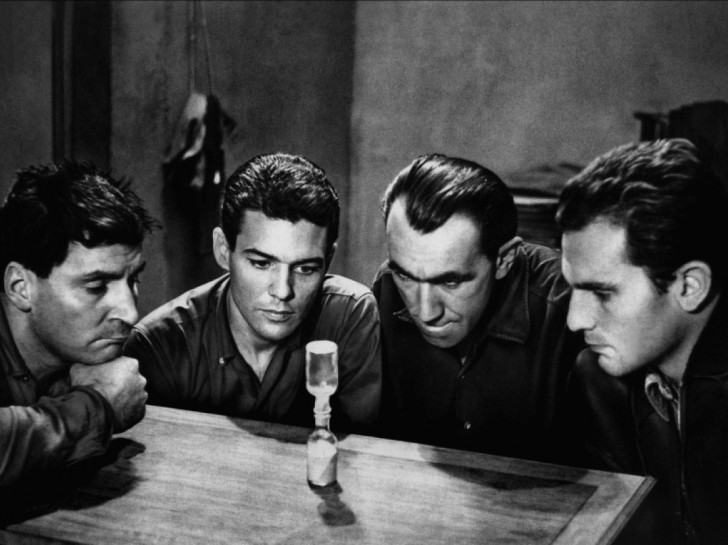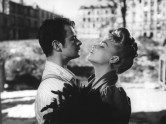
Le Trou
(The Hole)
With Marc Michel, Raymond Meunier, Jean Keraudy.
France/Italy, 1960, DCP, black & white, 132 min.
French with English subtitles.
DCP source: Rialto Pictures
The summit and endpoint of Jacques Becker’s cinema is the uncompromising yet strangely uplifting prison break drama Le Trou, a distillation to a pure essence of the dominant themes and strategies of his cinema. Becker’s realism, his fidelity to the specificities of place and terroir, is focused now on a seeming abstraction, an obdurate concrete cell whose every inch and cranny is, almost magically, revealed gradually to be charged with singular meaning, patiently discovered and tested by the prisoners searching for a path to the outside. Le Trou also dramatically raises the stakes for Becker’s ethical humanism—his willingness to forgive human weakness and even, moreover, to declare it a cornerstone and proof of trusting relationships—here given the ultimate test by the ambiguous figure of the young prisoner thrust into the cell just as four veteran cellmates are preparing to break free. The new prisoner played by Marc Michel (the slightly villainous mustached jeweler from The Umbrellas of Cherbourg) is suave, lithe, cautious, but possessed by a spark of hunger in his eyes, a searching for friendship, love, escape. He is a cipher of need, a void, a hole. Le Trou is given further ambiguous meaning by its source in a novel by José Giovanni, the controversial crime writer and Nazi collaborator who was charged but released from Death Row only to produce a string of masterful and autobiographically inspired novels that he quickly transformed into sangfroid underworld screenplays, beginning first with Becker’s final masterpiece. Every gesture and object in Le Trou is rich with ambiguous potential as a signal, a threat, an expression of love. As a tool, a gift, a weapon, a sign. As a revelation of cinema’s potential to invent narrative from even a single moving image. Hauntingly echoing Bresson’s A Man Escaped, Becker’s fable of human endurance discovers in human captivity a strange route towards transcendence through the stony soil of measured time. Becker's final film returns, subterraneously, to the roots of his cinema in his early work as assistant to Jean Renoir on Grand Illusion where Becker, revealingly, appears in an autobiographical and predictive cameo as a sharply dressed British prisoner of war unable to understand the French prisoners telling him about the tunnel to freedom they dug in the soil beneath them but could not use because of their sudden transfer to another prison.






















